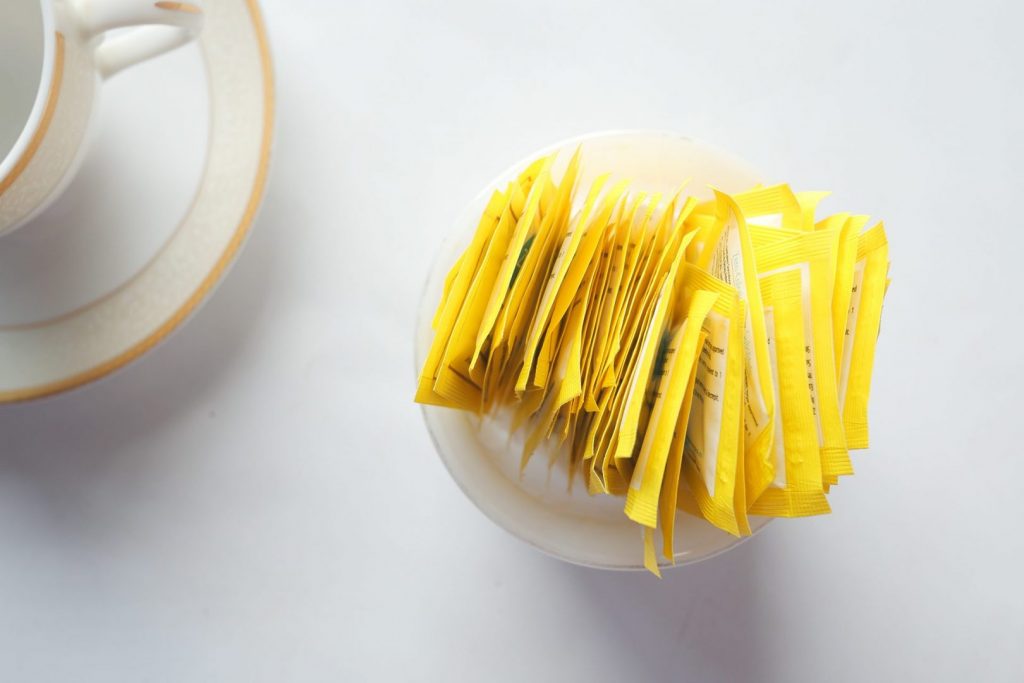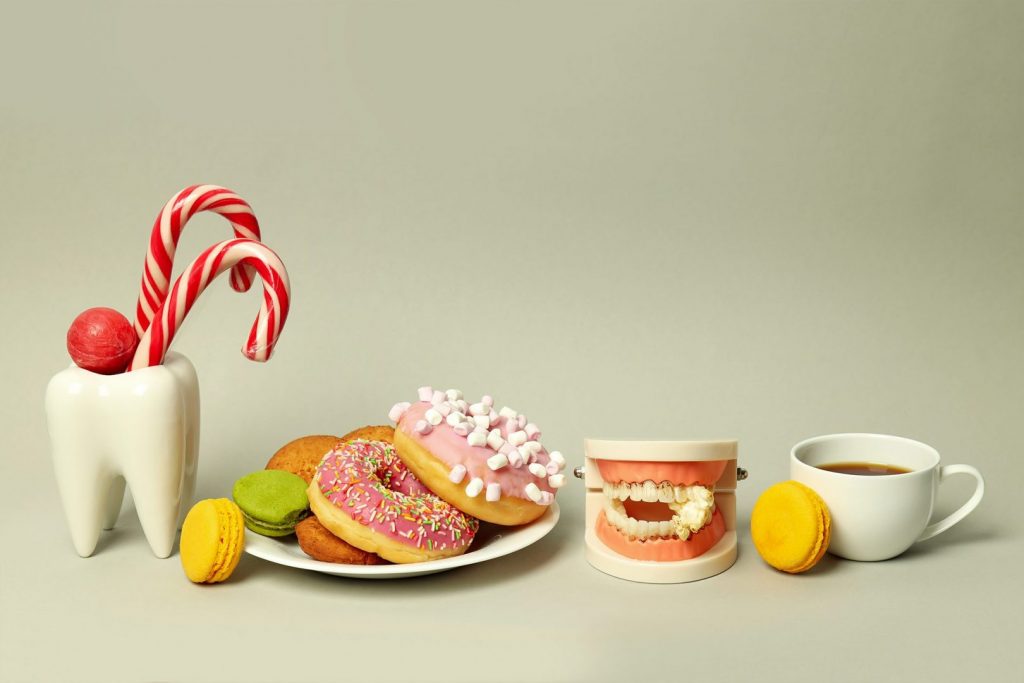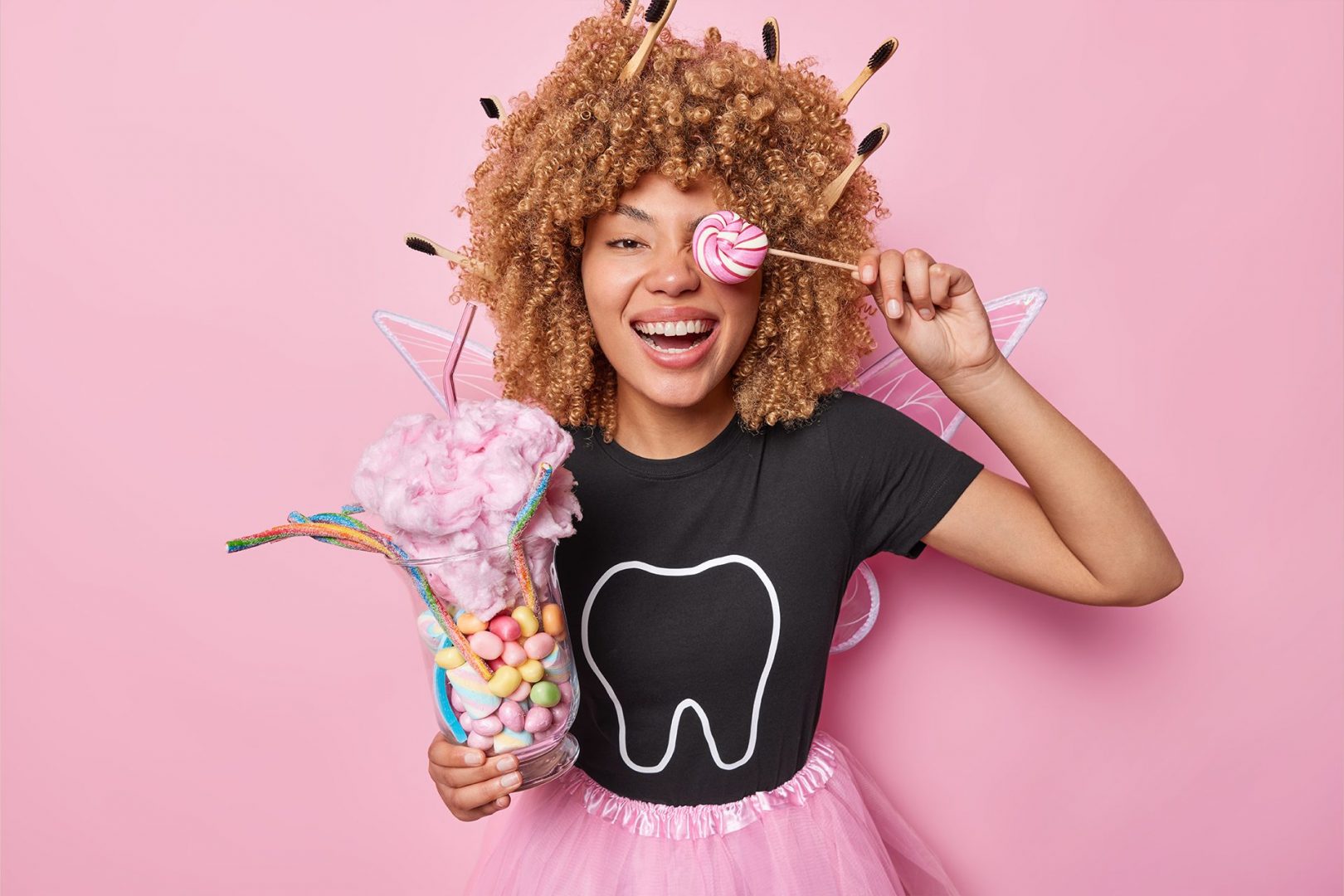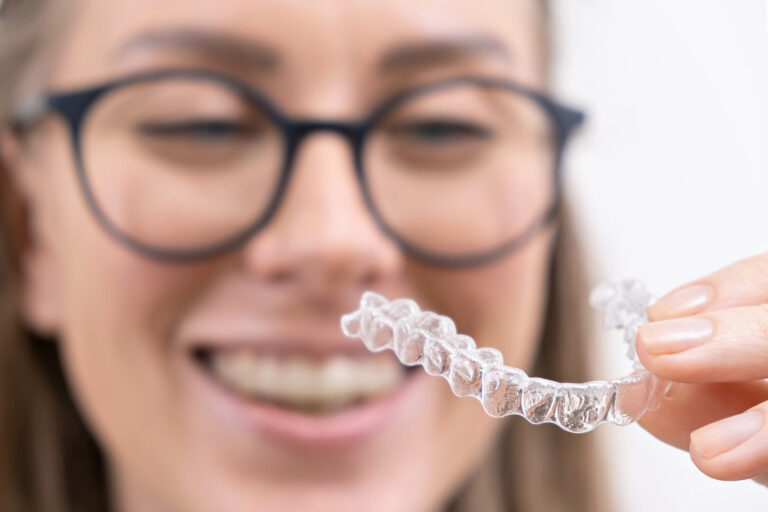We all know that sugar is bad for our teeth. But why don’t we turn to sugar-free lifestyles? We’ll go through how sugar causes tooth decay and its impact on our oral health, what sugar substitutes can do for us, and the strategies we can take to minimise the impact of sugar on our dental health.
How Does Sugar Affect Our Oral Health?
When you consume sugary foods and drinks, bacteria in your mouth go into overdrive, feasting on the sugars and producing acids. These acids attack the enamel of your teeth, gradually weakening it, leading to the formation of cavities.
The frequency of sugar consumption matters just as much as the quantity. Each time you snack on something sugary, you’re essentially giving the bacteria another opportunity to wreak havoc on your teeth. Constant exposure to sugar throughout the day keeps the bacteria active and increases the risk of enamel damage.

Children and adolescents are especially at risk of this, as their teeth are still developing and, unsurprisingly, they like sweet things. This doesn’t mean adults are immune though. People at any age can develop tooth decay because of an overabundance of sugar in their diet, whether it’s desserts, cereals, juice, sweetened drinks or honey. It’s not just a cube of sugar in your tea or coffee; it’s sugar across your diet.
Are Sugar Substitutes Bad For My Teeth?
Sugar substitutes are becoming more popular for a variety of reasons, including weight management and managing blood sugar levels. However, their effect on oral health is not as clear-cut.
On one hand, sugar substitutes are non-nutritive sweeteners, meaning they provide sweetness without the calories or carbohydrates found in sugar. This can be beneficial for dental health since they don’t directly contribute to tooth decay like sugar does. Without sugar, there’s less fuel for oral bacteria to produce the acids that lead to enamel erosion and cavities. In this regard, sugar substitutes can be considered ‘tooth-friendly’ options.

However, not all sugar substitutes are created equal. Some artificial sweeteners, particularly those found in diet sodas and beverages, have been associated with negative oral health outcomes. For instance, acidic beverages containing artificial sweeteners can erode tooth enamel over time, leading to tooth sensitivity and increased susceptibility to cavities.
Consuming excessive amounts of sugar substitutes in candies or baked goods may still pose a risk to oral health due to other ingredients present, or prolonged exposure to sweeteners.
How Can I Reduce The Impact of Sugar on My Oral Health?
Sugar is not good for your oral health. But that doesn’t mean you have to cut it out completely. Here are some easy strategies you can adopt to protect your teeth from the harmful effects of sugar.

- Read labels: Be mindful of hidden sugars in processed foods, sauces, condiments, and beverages. Choose products with lower sugar content, or opt for sugar-free alternatives.
- Limit sugary snacks: Minimise consumption of candies, cookies, cakes, and other sugary treats, especially between meals. Instead, snack on fresh fruits, vegetables, nuts, or yoghurt.
- Choose water: Replace sugary drinks like soda, fruit juice, and energy drinks with water or unsweetened beverages. The added benefit of water is that it helps to rinse away food particles and dilutes acids in the mouth.
- Opt for natural sweeteners: Use natural sweeteners like honey, maple syrup, or stevia in moderation as alternatives to refined sugar. Be aware though that they can still contribute to tooth decay if consumed excessively.
- Practise good oral hygiene: Brush your teeth at least twice a day with fluoride toothpaste and floss daily to remove plaque and food debris. This helps prevent the buildup of acids and bacteria that cause cavities.
Lastly, one of the easiest ways to protect your teeth is by visiting your dentist regularly. Your dentist will be the best assessor of how sugar is affecting your oral health, as they’ll be able to detect tooth decay or early signs of tooth decay. From there, they can make recommendations to you on how you can better take care of your teeth. To keep your teeth safe, shining, and healthy, call today to make your appointment with TEETH @ Tiong Bahru.







